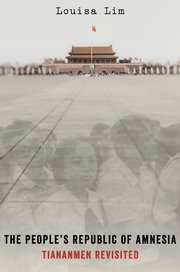The Xinjiang region has been the site of a mass detention program where an estimated 1.5 million Uyghurs have been or are being held in a series of internment camps, China Digital Times* reports. While authorities have claimed that these camps are simply “vocational training” facilities, there has been evidence of forced labor, political indoctrination, abuse, and deaths inside the camps. Reuters’ Michael Martina reports on senior Xinjiang officials’ recent claims that most people sent to the mass detention facilities have “returned to society”.
The World Uyghur Congress,* a Munich-based group that campaigns for self-determination, dismissed the officials’ claims as following “a predictable pattern of dubious statements.”
“Although there may be a kernel of truth to what we heard this morning, it’s so buried in deception that it becomes unrecognizable,” Dolkun Isa, the group’s secretary-general, said in a statement.
 Tahir Imin, a Uighur activist based in Washington, said, “Uighurs abroad continue to be unable to reach their relatives in the region. No phone calls, no internet communications,” The New York Times adds.
Tahir Imin, a Uighur activist based in Washington, said, “Uighurs abroad continue to be unable to reach their relatives in the region. No phone calls, no internet communications,” The New York Times adds.
James Leibold, an associate professor of politics at La Trobe University in Australia who has studied Xinjiang, said that factories are often linked to the camps, and that inmates assigned to work there live under heavy guard and monitoring.
“I find it highly unlikely, and frankly inconceivable, that the Chinese Communist Party would build this massive network of internment camps and then simply mothball them a couple of years later,” Professor Leibold told The Times. “Rather, the purposes of the camps were perhaps always meant to evolve over time, shifting from education to production, while their coercive, nonvoluntary and extrajudicial nature remains the same.”
China has deployed nationalist students to disrupt foreign protests against the Communist regime’s human rights abuses and to harass demonstrations in support of Hong Kong’s democracy movement, most recently in Australia and New Zealand.
A scuffle broke out on Tuesday at the University of Auckland in New Zealand, when three Chinese men were filmed shouting down students from Hong Kong at a rally and pushing a young woman to the ground, The Times reports:
A recent poll of Australians’ views on foreign affairs, by the Lowy Institute, found that many Australians were experiencing a similar shift: Only 32 percent of respondents said they trust China either “a great deal” or “somewhat” to act responsibly, a 20-point fall from 2018.
 The pro-Beijing Confucius Institutes are playing a prominent role in shaping the political narrative, experts suggest.
The pro-Beijing Confucius Institutes are playing a prominent role in shaping the political narrative, experts suggest.
“It’s part of this China illiteracy, which is quite prevalent in Australia,” said Louisa Lim, a professor at the University of Melbourne and the author of “The People’s Republic of Amnesia: Tiananmen Revisited.”
“In many cases,” she said, “the allure of Chinese investment and large numbers of Chinese students has been so overwhelming that educational institutions have just thrown their arms wide open without doing their due diligence.”
*A partner of the National Endowment for Democracy.







